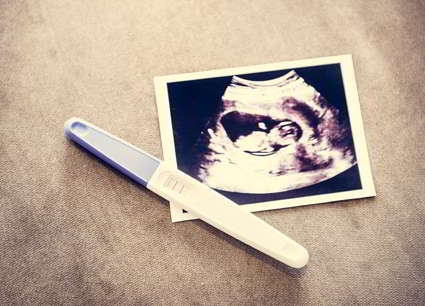

We are used to hearing words and phrases like beta hCG wait and two-week wait for a beta hCG test, but do we really know what they mean?
Commonly associated with the two-week wait, the beta hCG is the period of time between the day when a patient undergoes a fertility treatment (be it either intrauterine insemination or embryo transfer in case of in vitro fertilisation) and the day the treatment results are obtained; where the result can be either positive or negative. This wait, which usually lasts from 9 to 14 days, depending on when the embryo transfer was performed, is a time of hope but also stress, which can cause great anxiety in patients.
How do we know if the beta hCG is positive or negative?
It is often thought that a pregnancy test is enough, but this could not be more untrue. A regular pregnancy test will not always detect a positive pregnancy, and could fail by registering a false positive. Therefore, it is crucial to have a pregnancy confirmed by a blood test, and to have a check done by a gynaecologist.
We will know if the beta is positive or negative by analysing the amount of hCG present in the blood measured by the beta-hCG hormone, after which it’s named. The hCG hormone, scientifically known as human chorionic gonadotropin, is produced by the embryo when it is in the state of trophoblast (group of cells present in early stages of development), which then evolves into placenta. The hCG is a very important and necessary hormone for the progress and maintenance of the pregnancy.
6 days after the fertilisation of the egg, the hCG hormone can be detected, as it will have reached the future mother’s blood, and its levels can be measured through a blood test. The longer we wait, the higher the hCG value will be, since it increases until it reaches its peak during the second month of pregnancy. If the results of the blood tests show that the beta hCG is less than 5 IU/l, it means that there’s no sign of a pregnancy.
If after the first 30 days of pregnancy the beta value has not sufficiently increased, it may indicate that something is not right. It could be, for instance, an ectopic pregnancy, which occurs when the fertilised egg is implanted outside the uterus. Situations like this occur in one out of every 50 pregnancies.
The following table shows the normal guidelines for hCG levels during the course of pregnancy:
Just two weeks? It feels like years!
The two-week wait can feel like forever, so if you are in this situation it’s good to stay calm and face it with optimism, this way you can deal with the wait in a more positive way and help yourself to relax when the result time comes.
Try to stick to your day-to-day routine, working, studying and planning the weekend, and forget about the actual dates. It is important for you to know that you can rely on your partner or loved ones, and to eat a balanced diet.
The day will come and you will be better prepared to hear the news.
We would like to encourage all of you who are undergoing this process and we wish you the best outcome!




Comments are closed here.